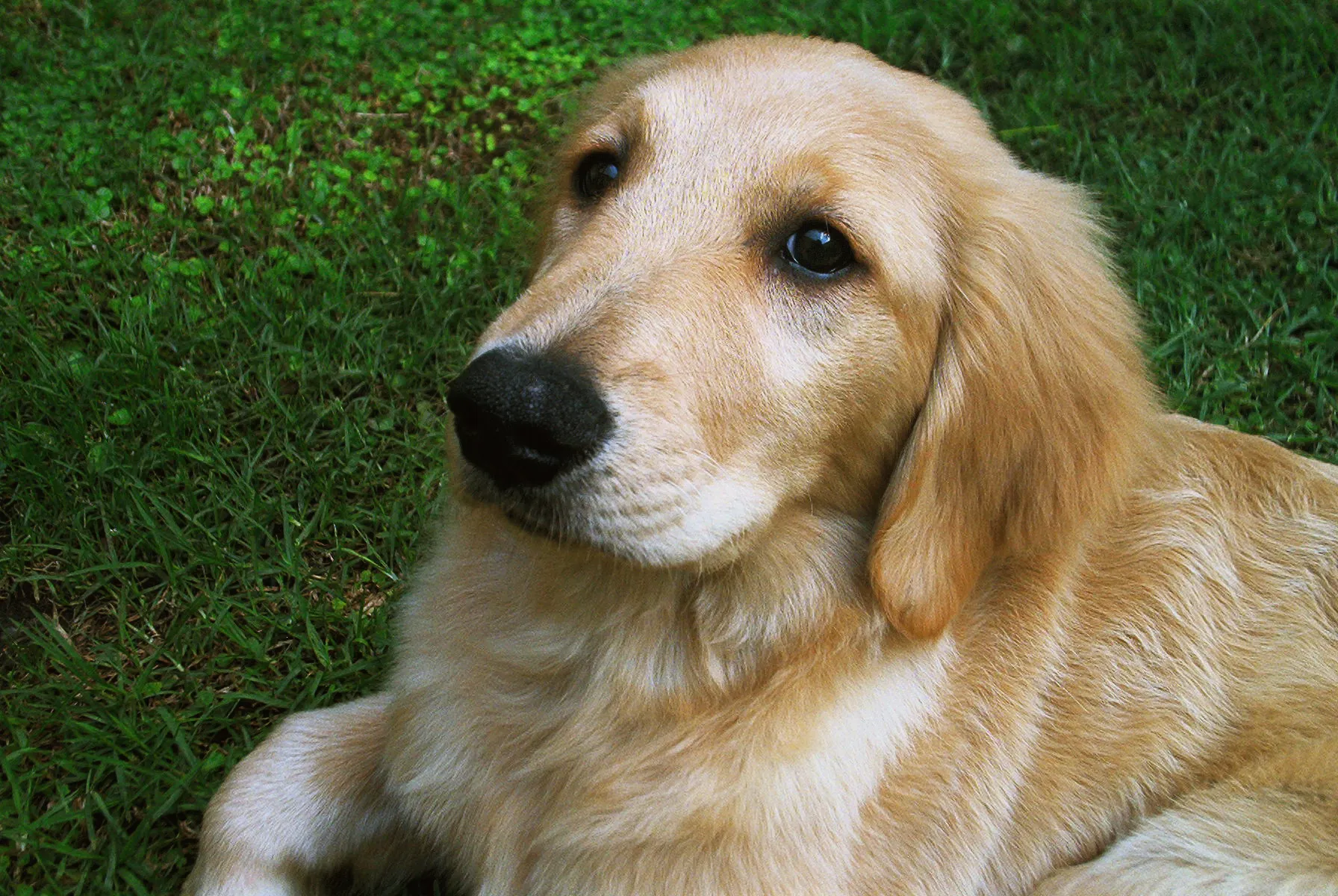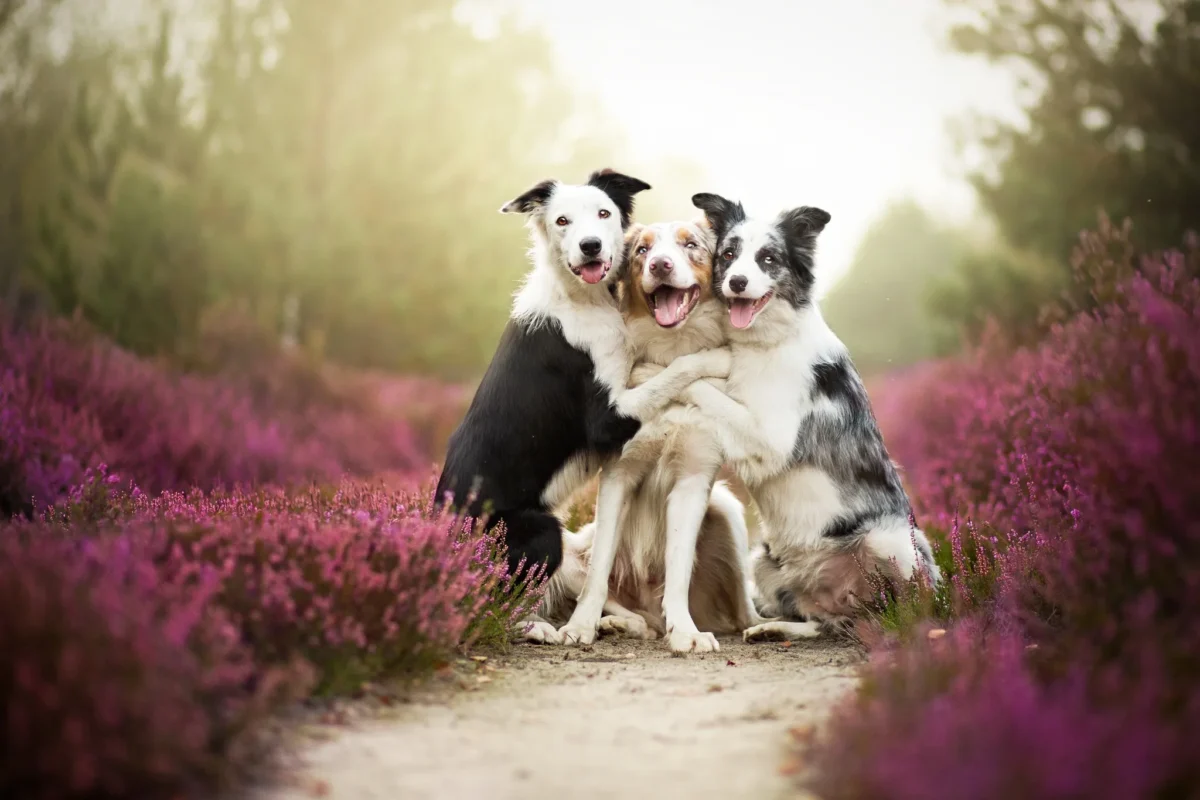If you’re a dog lover, you’ve probably heard of the Golden Retriever breed. Known for their friendly nature and beautiful golden coats, these dogs are a popular choice for families and individuals alike. However, you may have also heard rumors that Golden Retrievers can cause death. In this article, we’ll explore the truth behind these claims and separate fact from fiction. So, if you’ve ever wondered about the potential dangers of owning a Golden Retriever, keep reading to find out the real story.
When it comes to the topic of Golden Retrievers causing death, it’s important to approach the subject with an open mind. While these dogs are generally known for their gentle and loving disposition, like any other animal, they have the potential to cause harm under certain circumstances. In this article, we’ll delve into the specific situations where a Golden Retriever could pose a threat to human life. By understanding the risks involved, you’ll be better equipped to make an informed decision about owning one of these beloved pets.
While it’s true that Golden Retrievers have been involved in incidents resulting in fatalities, it’s essential to put these cases into perspective. The number of such incidents is relatively rare, considering the large population of Golden Retrievers worldwide. In this article, we’ll explore the factors that may contribute to these tragic events and provide tips on how to mitigate any potential risks. By the end, you’ll have a clearer understanding of whether owning a Golden Retriever could pose a danger to you or your loved ones.
The Golden Retriever Breed
As a dog lover and owner of both a Golden Retriever and a Goldendoodle, I have a deep appreciation for these wonderful breeds. With my experience working at animal shelters and veterinary offices, I’ve come to understand the unique qualities and potential risks associated with owning a Golden Retriever.
Golden Retrievers are known for their friendly and gentle nature. They are often described as being excellent family pets, as they are highly affectionate and get along well with children and other animals. Their intelligence and trainability make them popular choices for service and therapy work. Additionally, their beautiful golden coats and welcoming smiles make them highly photogenic and sought after as social media stars.
However, like any dog breed, Golden Retrievers do have the potential to cause harm under certain circumstances. It’s important to note that incidents resulting in fatalities involving Golden Retrievers are relatively rare considering the large population of these dogs worldwide. Nonetheless, it’s crucial to be aware of the potential risks and take steps to mitigate them.
One potential risk is the size and strength of the Golden Retriever. These dogs are larger in size and can unintentionally knock over small children or elderly individuals if not properly trained or controlled. Additionally, their exuberant nature and love for play can sometimes result in accidental injuries. It’s important to provide proper obedience training and socialization to ensure they learn appropriate behavior around people of all ages.
Another consideration is the health issues that can arise in Golden Retrievers. Like all breeds, they can be prone to certain genetic conditions, such as hip dysplasia, which can impair their mobility. Regular veterinary check-ups, a balanced diet, and proper exercise can help prevent and manage these health concerns.
While incidents resulting in fatalities involving Golden Retrievers are rare, it’s essential to understand the potential risks associated with owning this breed. With proper training, socialization, and regular veterinary care, you can ensure a safe and enriching environment for your Golden Retriever. Remember, knowledge and responsible ownership are key when it comes to keeping both you and your furry friend happy and healthy.
Potential Health Issues
As a dog lover who owns both a golden retriever and a Goldendoodle, I understand the importance of being well-informed about potential health issues that can affect these breeds. While golden retrievers are generally healthy dogs, it’s always good to be aware of any potential risks that may arise. Below are a few health issues that you should keep an eye out for:
- Hip Dysplasia: This is a common hereditary condition among large dog breeds, including golden retrievers. It occurs when the hip joint doesn’t develop properly, leading to pain and eventual mobility issues. Regular exercise, a balanced diet, and maintaining a healthy weight can help minimize the risk of hip dysplasia.
- Bloat: Also known as gastric dilatation-volvulus (GDV), bloat is a potentially life-threatening condition that most commonly affects deep-chested breeds like golden retrievers. It occurs when the stomach fills with gas and twists, cutting off blood circulation. If you notice symptoms such as a distended abdomen, unproductive retching, or restlessness, seek immediate veterinary care.
- Allergies: Golden retrievers and Goldendoodles are prone to allergies, such as food allergies, environmental allergies, and flea allergies. Common signs of allergies include itching, redness, rashes, and excessive licking. If you suspect your dog has allergies, consult with your veterinarian for proper diagnosis and management options.
- Heart Disease: Golden retrievers can be susceptible to certain heart conditions, including dilated cardiomyopathy (DCM). Regular check-ups with your veterinarian, a balanced diet, and exercise can help maintain a healthy heart.
Remember, this list is not exhaustive, and every dog is unique. Regular veterinary check-ups, proper nutrition, exercise, and maintaining an overall healthy lifestyle are vital in preventing and managing potential health issues.
Golden Retrievers and Children
As a dog lover and owner of a Golden Retriever and a Goldendoodle, you may be wondering about the interaction between these gentle breeds and children. Well, let me assure you that Golden Retrievers are known for their affectionate and patient nature, making them great companions for kids! Whether you have a Golden Retriever or a Goldendoodle, both breeds tend to be friendly and tolerant towards children, making them excellent family pets.
One of the reasons why Golden Retrievers are fantastic with children is their playful and energetic personality. They love to engage in activities and games, which can provide hours of entertainment for your little ones. Whether it’s a game of fetch in the backyard or a walk around the neighborhood, these dogs are always up for some fun!
Additionally, Golden Retrievers are known for their gentle nature and ability to adapt to different situations. They have an innate sense of responsibility and are often protective of their family members, including children. This can provide parents with peace of mind knowing that their furry friend is looking out for their little ones.

« Discover the Surprising Ranking of Golden Retrievers in Canine Intelligence! You Won’t Believe Where They Stand
Shocking Signs your Golden Retriever may have Cancer! Discover the Must-Know Symptoms Now »
However, it’s essential to teach both your children and your dog how to interact with each other properly. Teach your children to respect your dog’s boundaries and never to pull on their ears or tail. Additionally, supervise all interactions between your dog and children, especially young ones, to ensure a safe and positive experience for everyone involved.
Remember, no matter how friendly your Golden Retriever or Goldendoodle may be, it’s crucial to always prioritize safety. Never leave young children alone with a dog, regardless of the breed. Accidents can happen, and it’s better to be cautious to prevent any potential mishaps.
Golden Retrievers and Goldendoodles can make wonderful companions for children. With their friendly nature and adaptability, these breeds have the potential to create lifelong memories and strong bonds. Just remember to teach children how to interact with dogs safely and never leave them unsupervised. Enjoy watching your kids and your furry friend grow up together, forming a special bond that will last a lifetime.
Golden Retrievers and Allergies
If you’re a proud owner of a Golden Retriever or a Goldendoodle, you’re probably familiar with their loving personalities and playful nature. But did you know that these adorable dogs can also be prone to allergies? Here’s what you need to know about allergies in Golden Retrievers and how to manage them.
1. Environmental Allergies: Just like us, dogs can be allergic to various substances in their environment. Common allergens include pollen, dust mites, mold, and certain grasses or trees. If your furry friend is constantly scratching, licking their paws, or experiencing frequent ear infections, it could be a sign of environmental allergies.
2. Food Allergies: Some Golden Retrievers may develop food allergies, which can cause skin problems, digestive issues, or chronic ear infections. Common allergenic ingredients in dog food include beef, chicken, dairy, wheat, and soy. If you suspect your dog has a food allergy, it’s important to work with your veterinarian to find a suitable hypoallergenic diet.
3. Flea Allergy Dermatitis: Flea bites can cause intense itching and discomfort for your Golden Retriever. However, some dogs are more sensitive to flea saliva and develop a condition called flea allergy dermatitis. Prevention is key – make sure your dog is protected with regular flea prevention medications and keep their environment clean and free of fleas.
While allergies can be a nuisance, the good news is that there are ways to manage them and keep your furry friend comfortable and happy. Here are a few tips:
- Consult with your veterinarian: If you suspect your Golden Retriever has allergies, it’s essential to consult with your veterinarian for proper diagnosis and treatment options.
- Allergy testing: Your vet may recommend allergy testing to identify specific allergens. This can help you create a management plan tailored to your dog’s needs.
- Medications: Your vet may prescribe antihistamines, steroids, or other medications to help manage your dog’s allergies and relieve their symptoms.
- Regular grooming: Frequent brushing and bathing can help remove allergens from your dog’s coat and reduce itching.
- Dietary management: If your dog has food allergies, your vet may recommend a hypoallergenic diet or elimination trial to identify and eliminate problem ingredients.
Remember, each dog is unique, and what works for one might not work for another. By working closely with your veterinarian, you
Tips for Responsible Ownership
As a proud owner of both a Golden Retriever and a Goldendoodle, I understand the joy and love that these furry friends bring into your life. But along with the fun and companionship, it’s important to remember the responsibilities that come with owning these beautiful breeds. Here are some tips for being a responsible owner and ensuring the health and well-being of your golden retriever or Goldendoodle:

1. Prioritize Regular Veterinary Care
Just like humans, dogs need regular check-ups and preventive care to stay healthy. Schedule annual visits with your veterinarian for vaccinations, physical exams, and screenings. This helps identify any potential health issues early on, giving you the opportunity to take appropriate actions to keep your furry friend in top shape.
2. Provide a Nutritious Diet
Good nutrition is key to keeping your golden retriever or Goldendoodle healthy. Consult with your veterinarian to determine the best diet for your furry friend’s specific needs. Feed them high-quality dog food that is appropriate for their age, size, and activity level. Avoid overfeeding and limit treats to maintain a healthy weight.
3. Make Exercise a Priority

Golden Retrievers and Goldendoodles are active breeds that require regular exercise to keep their minds and bodies healthy. Daily walks, playtime, and interactive toys are essential. Engage in activities like fetch, swimming, or agility training to keep them physically and mentally stimulated.
4. Practice Good Grooming Habits
Both golden retrievers and Goldendoodles have thick, luxurious coats that require regular grooming. Brush their fur to prevent matting and tangles. Additionally, check and clean their ears regularly to prevent infections. Don’t forget to trim their nails and brush their teeth at least twice a week for optimal dental health.
5. Provide a Safe and Enriching Environment
Create a safe and enriching environment for your furry friend by puppy-proofing your home and yard. Remove any potential hazards, provide them with their own comfortable sleeping area, and offer interactive toys and puzzles to keep them mentally stimulated.

Conclusion
By following these tips for responsible ownership, you can ensure the health and well-being of your Golden Retriever or Goldendoodle. Regular veterinary care, proper nutrition, exercise, and grooming are all essential for keeping your furry friend happy and healthy. Additionally, creating a safe and enriching environment will contribute to their overall well-being. Remember, owning a Golden Retriever or Goldendoodle comes with great responsibility, but with the right care, they can bring you years of joy and companionship. So, take the time to provide the love and care they deserve, and you’ll have a loyal and loving companion by your side for many years to come.







